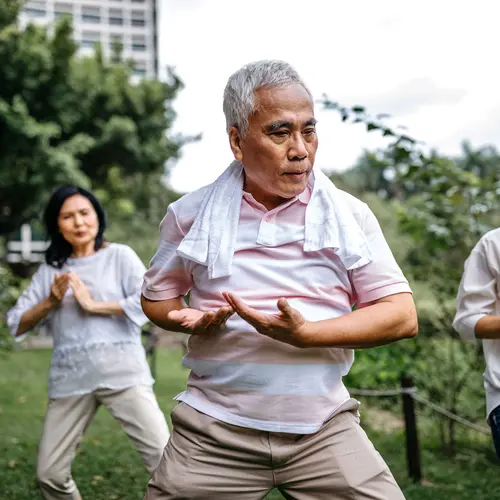If you’re a polite person, you probably say “thank you” several times a day without giving it much thought. But when was the last time you truly felt grateful for something or someone and took a moment to reflect on it?
Some people are naturally inclined to focus on the good in their lives, but that’s hardly the norm, says Cortland J. Dahl, PhD, a research scientist at the University of Wisconsin-Madison Center for Healthy Minds. “It goes back to our biology and evolution,” he says. “We’ve evolved not to be happy but to survive, and focusing on the negative is what’s helped us to survive in the past.” But today, stress-related problems -- including insomnia, depression, digestive disorders, heart disease, and many others -- are among our greatest threats. Practicing gratitude may help.
So what does gratitude actually mean? Definitions vary, but experts typically define it as the affirmation of goodness in our lives as well as the ability to attribute those positive things to a source beyond ourselves (such as other people or a higher power). Practicing gratitude means recognizing gratitude, either by noting it silently or expressing heartfelt thanks to others.
If you’re not particularly spiritual or reflective, the notion of intentionally practicing gratitude might seem silly or unimportant. But there’s good reason to give it a try. Studies have shown that grateful people tend to be happier, sleep better, and have lower levels of inflammation. They’re also less apt to be depressed and more resilient after a trauma. Research has even found that people with a type of heart disease (asymptomatic heart failure) who started keeping a daily gratitude journal had lower levels of CRP, an inflammation marker, just 8 weeks later. These studies don’t directly prove that gratitude caused those benefits, but the link is clear.
There hasn’t been a lot of research on how gratitude impacts the brain. But in one small study, researchers watched participants' brains through an fMRI scanner during a gratitude exercise. The scans showed that when people were feeling grateful, there was a boost in activity in brain areas that are also linked to empathy and social bonding.
A larger study included nearly 300 people who had reached out to a university-based psychotherapy service. Some of them only did psychotherapy, others did psychotherapy plus expressive writing, and a third group did psychotherapy plus writing gratitude letters to other people. Those who wrote gratitude letters in addition to psychotherapy reported better mental health, a change that was still present 12 weeks after the study ended.
Practicing gratitude doesn’t require maintaining a sunny disposition at all times, Dahl says. In fact, he notes that people who are struggling are among those who may benefit most from cultivating gratitude. “Gratitude and a sense of connectedness are precisely what help us get through difficult times,” Dahl says.
Remember that you can be grateful for things that most people would agree are significant -- perhaps a loving family or a job you can rely on -- as well as those that might appear relatively minor. “For example, you can appreciate that someone has a sense of humor. If you take it a step further and acknowledge that that person made you laugh and cheered you up, that’s gratitude,” Dahl says.
Ways to Boost Gratitude
You can aim to be more grateful as you go about your day, but most people find that it helps to devote a specific time to engaging in a gratitude exercise. “Gratitude is a skill you can turn into a habit,” Dahl says.
To get started, try one or more of the following approaches.
Name three things you’re grateful for and why.
Dahl and his wife recently started doing this before bed, and they’re already reaping the benefits. “We noticed we were going through a stressful period at work, and we used to lay down and go into complain mode,” he says. “Now we take turns picking a different focal point and naming three things about it that we’re grateful for. It’s the simplest thing, but it puts us in a better mood before going to sleep.”
Write a letter to someone you’re grateful for.
Pick up a pen and write a note to somebody you’re grateful to have in your life, suggests Amy Morin, LCSW, a psychotherapist and author of 13 Things Mentally Strong People Don’t Do.
Be as specific as possible. “Share that you appreciate they took the time to do something kind for you, or that you appreciate the times when they’ve really helped you in life. If you’re brave, read them the letter; it will benefit them too.”
Not feeling so bold? Write the letter anyway but keep it to yourself.
Soak up stories about gratitude.
Many books have been written about gratitude, and there are podcasts and TED Talks, too, Dahl says. Spending a few minutes each day reading or listening to them may help shift your mindset. Try reading a book like The Gratitude Project or watching a TED Talk on the power of “living eulogies.”
Create a bulletin board of things you’re thankful for.
Think of it like a mood board focused on gratefulness. Pin up pictures of people, experiences, and things you’re grateful for and keep it somewhere visible, like your kitchen or home office. “Just seeing that bulletin board every day can give you a boost,” Morin says.
Reflect as a ritual.
“I think daily rituals are really helpful, and I meditate every day,” Dahl says. You can develop your own gratitude meditation; all you have to do is sit quietly and devote a few minutes to reflecting on what’s good in your life, big or small.

